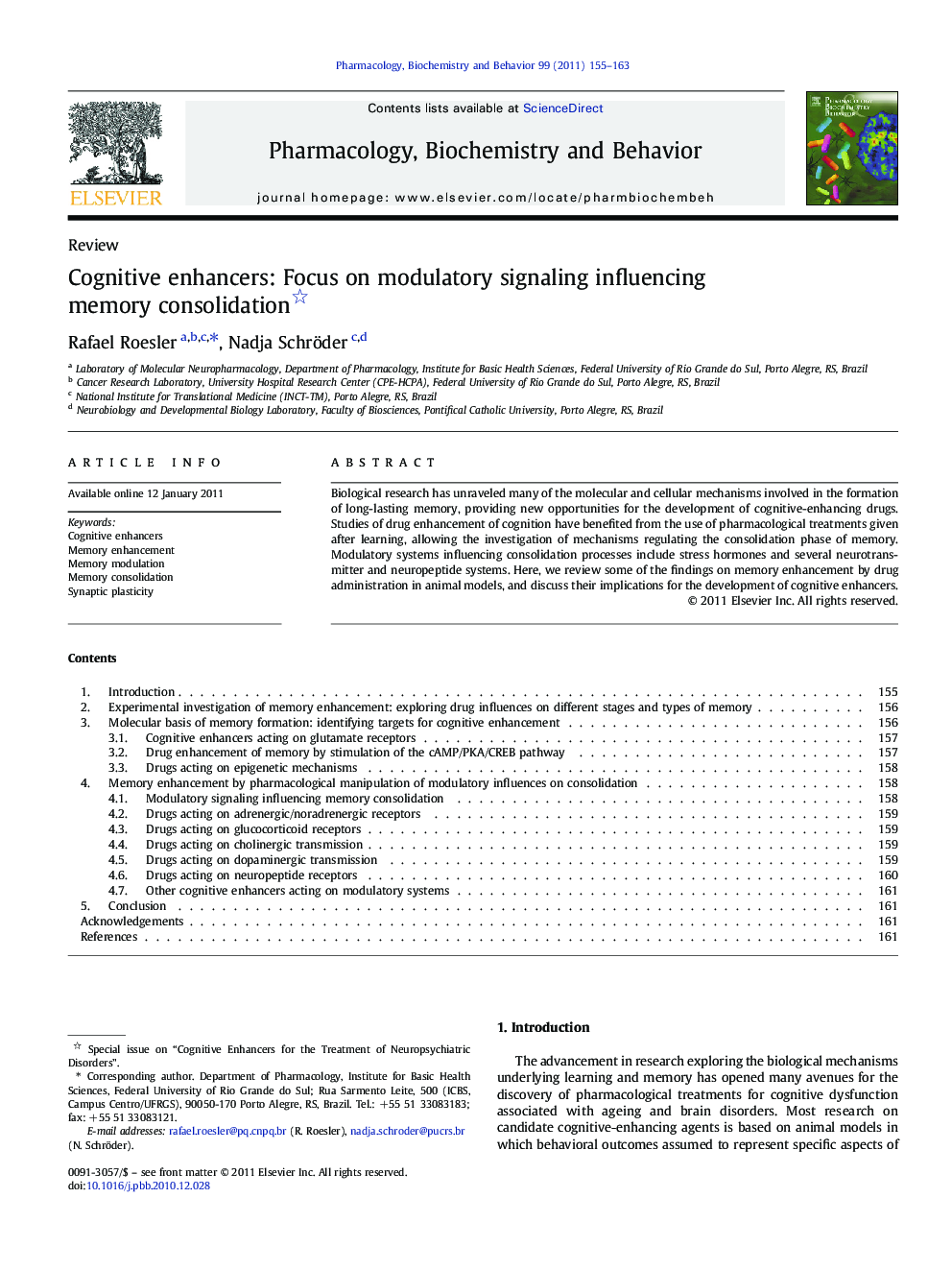| Article ID | Journal | Published Year | Pages | File Type |
|---|---|---|---|---|
| 2013209 | Pharmacology Biochemistry and Behavior | 2011 | 9 Pages |
Biological research has unraveled many of the molecular and cellular mechanisms involved in the formation of long-lasting memory, providing new opportunities for the development of cognitive-enhancing drugs. Studies of drug enhancement of cognition have benefited from the use of pharmacological treatments given after learning, allowing the investigation of mechanisms regulating the consolidation phase of memory. Modulatory systems influencing consolidation processes include stress hormones and several neurotransmitter and neuropeptide systems. Here, we review some of the findings on memory enhancement by drug administration in animal models, and discuss their implications for the development of cognitive enhancers.
Research Highlights► Memory dysfunction in aging and brain disorders represents an unmet medical need. ► A wide range of neurochemical and hormonal systems regulate memory consolidation. ► Memory can be enhanced by drugs targeting mechanisms that regulate consolidation. ► Targets for cognitive enhancement include neuropeptides and intracellular pathways.
